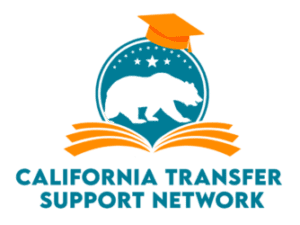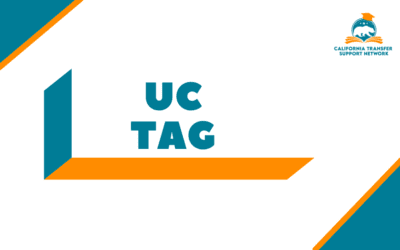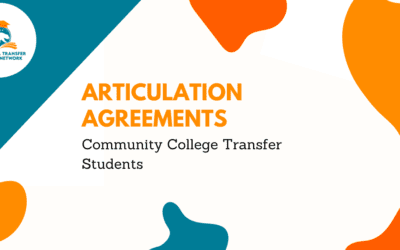Tulsa Community College may be a perfect choice if you’re looking for a place to start your college education. Located in the heart of Tulsa, Oklahoma, Tulsa Community College offers associate degrees and certificates in more than 150 programs of study. With small class sizes and experienced instructors, TCC provides students with a quality education that prepares them for success after graduation.
This blog post will discuss Tulsa Community College, how to apply, and what you can expect during the admissions process. We’ll also provide some general information about the college so you can better understand the institution.
Our goal at California Transfer Support Network is to do more than just showcase California community colleges but also focus on providing accurate and up-to-date information about individual colleges. Students can make informed decisions about which college best fits their needs.
If you have questions about the admissions process or want more information about Tulsa CC, continue reading.
Tulsa Community College Admissions
The admissions process at TCC is simple. You’ll need to submit an application form, transcripts, and test scores. Once your application has been reviewed, you’ll be notified of your admission status.

Tulsa Community College Campus Locations
Tulsa Community College has four main campuses that are spread out throughout Tulsa. TCC has the following locations:
- Metro Campus (Downtown)
- Northeast Campus
- Southeast Campus
- West Campus
Located throughout those campus facilities lie several other campus venues and information centers.
Related: When do UC Decisions Come Out? Announcing 2023 UC Decision Dates
Tulsa Community College Tuition
If you are an Oklahoma resident, the cost per every credit hour is roughly $126.42.
Suppose you are a full-time student (12 credit hours) the cost of attending TCC would be roughly $3,0035 for an entire academic year.
Payment of courses and books must be completed before official enrollment. Failure to make a payment will result in a withdrawal from the course. You can locate all the applicable fees and payment schedules by utilizing the search form provided on the TCC website.
Student Life
Founded in 1970, TCC is the largest two-year public college in the State of Oklahoma. The institution serves approximately 25,000 students every year. The magnitude of the TCC System is so much that the college boasts an impressive four main campuses, two community campuses, and a business conference center located in and around the metropolitan Tulsa area.
Tulsa CC has a 20-1 Student to Faculty Ratio, and the vast majority, nearly 94 percent, of all students come from the State of Oklahoma. In 2020, TCC has six California residents graduate from the institution, demonstrating the lack of integration between the two college systems of both states.
Clubs and Societies
Evaluate the various clubs and societies offered by TCC by taking advantage of the interactive search form on their website and dispersed throughout the admission aid menu. You can also use the campus life menu to seek out appropriate events, locations, or eateries throughout the Tulsa area. The campus life menu can work in conjunction with the student resources menu’s search form menu.
Student Demographics
Over half of all TCC students are White. The latest report issued has the student Race/Ethnicity percentages as follows:
- White 52.6%
- Hispanic: 12.4%
- African American or Black: 7.2%
- Two or More Races: 12.4%
- American Indian or Alaska Native: 6.2%
TCC is situated in a part of the continental United States that is predominantly Caucasian (White), so it is no surprise that half of all enrolled students are White.
Native American Students/Scholarships
Note the represented number of American Indian or Alaska Native students. Oklahoma is home to several American Indian Reservations, and the State has focused heavily on encouraging degree completion amongst American Indian communities.
Several of the State’s initiatives require significant investment in scholarships for Native American communities in the hope that it will eliminate one of the most devastating barriers to receiving a college education.
Age Distribution
TCC Students are diverse in respect to their age. The average age of a TCC student is 27 years old, but the college enrolls students ranging in age from 17 to 65 years old.
This is likely due to TCC’s focus on providing affordable and accessible education to all community members, including working adults seeking to improve their career prospects.
The total enrollment by age for the 2021 school year was as follows:
- Under 18: 10.4% (1,611 students)
- 18-19: 28.1% (4,256)
- 20-21: 18.8% (2,818)
- 22-24: 12.5% (1,945)
- 25-29: 12.5% (1,891)
- 30-34: 7.3% (1,186)
Tulsa College Admissions Requirements
To be eligible for admission to Tulsa CC, applicants must:
- Be a high school graduate or have earned a GED Certificate
- Submit an Application
- Submit Official High School Transcripts or GED Scores
- Submit SAT or ACT Test Scores (If available)
TCC does not require applicants to submit SAT or ACT scores as part of the onboarding process.

However, suppose you have taken either of these exams. In that case, you are encouraged to submit your scores as they may improve your chances of exemption from developmental coursework or being eligible for certain scholarships.
If you have questions regarding the admission process or the student resources menu, connect with TCC admission team members to submit the application and ensure a seamless admission process.
Whenever you meet or connect with TCC, you are improving your admission potential because your application will undoubtedly be a warm welcome for the transfer team you are applying with.
What GPA do you need to get into Tulsa Community College?
Since TCC is an open admission institution, there is no minimum test score or GPA requirement.
The application is free and was designed for easy completion. If you submit an application but elect to wait for three years, you will have to submit another one, as the previous one expired.
What type of programs does TCC offer?
TCC provides abundant professional certification, non-degree, and associate degree courses and programs. The institution’s highest degree is an associate’s Degree, but TCC can provide certificates and other work development credentials for students.
Associate Degrees Offered
More specifically, the institution awards three degrees:
- Associate in Arts,
- Associate in Science,
- and Associate in Applied Science
Each degree path will require a minimum of 60 total credit unit hours to be completed, typically finished in two years.

Depending on your course section, every student can complete the requirements first needed to complete an Associate Degree program.
Connect with TCC staff if you are unsure about what program to enroll in and generally consider the broader implications of the admission process.
Programs Courses Menu
Moreover, the program’s course menu displays every student’s requirements, credit hours, and completion needs. The best way to keep on track with the program you are taking is to identify the program in the program’s courses menu and establish an academic plan.
Contact the university you are interested in transferring to and consider enrolling in multiple campus locations to ensure the coursework is submitted, and you are on track to completion.
The admission process is not easy to navigate if you are left to fend for yourself, so consider submitting an application that admission offices throughout the country would be willing to accept.
Accessibility is a major component of completing community college on time, and TCC recognizes this. The institution has a clear programs courses menu that can be used to identify which courses you may be interested in.
Understanding the program’s course menu is critical to ensuring your time spent with the counselor is efficient.
Summer Classes
Classes stretch over a semester system and can occur throughout the year at different times. However, we are strong advocates for students taking summer classes to improve the prospects of transferring on time and in comfort.
When you apply and enroll in a class section that is the first of many prerequisites, you establish yourself in the application period and complete the necessary class requirements to become a transfer student.
Connect with TCC, so you can complete summer courses and finish your section on time and far earlier than originally intended. The application team is standing by to ensure you are taking classes that will count for admission consideration on your application.
Ideally, non attendance in courses is frowned upon. Students can locate available resources through the institution’s Student Resources Menu and the Programs Courses Menu.
Interested in a specific course or campus? Tulsa Community College has a plethora of different campuses and programs that are powered by academic experts and advisors who are eager to get started.
The time to apply to your desired course list has come, and to complete the required courses, one must pay the tuition fees and meet with their advisors, as it is the best way to keep track of the services and classes the university offers.
Dual Credit Courses for High School Students
TCC provides dual enrollment programs for concurrent high school students, sometimes called dual credit. These programs allow high schoolers to take college-level courses in the comfort of their high school, all while earning credit to the local CC partnering with the school.
Tulsa Community College Dual Enrollment Admission Requirements
For students interested in the dual enrollment program, the following requirements need to be met for admission:
- Students must have a valid ACT score and compile the following scores: Juniors (21 ACT), Seniors (19 ACT)
- If you did not take the ACT, you must have a cumulative high school GPA of 3.5 for Juniors and 3.0 for Seniors.
- Must be considered a junior or senior in high school (11th and 12th grade).
- If homeschooled or attending an unaccredited high school, the student must be at least 16 years of age if they have junior standing and 17 years of age if they are considered seniors.
These requirements may differ depending on the admission procedure at your school, failure in payment, or issues with non attendance.
Admission for Non-Oklahoma Residents
For all of my California readers, which most of you are, transferring to TCC needs to be done in the following way.
First, the transcript of the record from all of the colleges or universities you attended will be provided at full value and sent to the registrar’s office. Credit will only be prescribed full value if the institution it comes from was accredited by the Higher Learning Commission (HLC) or another accrediting body.
Transcripts should demonstrate that the student was in good standing with the previous institution before leaving and earned satisfactory grade marks from the institution they plan to transfer to (an average grade of C or better).
Second, when it is beneficial for the student’s program, and the courses or programs have been validated, transcripts from non-accredited institutions may be reviewed for transfer credit acceptance.
In addition to meeting the same conditions as students transferring from HLC or other regionally accredited schools (listed above), each nonresident applicant must validate their transferred credits by averaging a “C” grade or higher for at least one term.
Conclusion
Overall, Tulsa CC provides various student services and understands the best way to keep attendance high. Each semester, Oklahoma students contact the Registrar’s office.
The welcome one will receive at TCC is almost like that of a university. Depending on when you get started, make sure you are powered throughout the day and check in with the academic advisors to ensure everything is submitted regarding your application or new.
Check to ensure no new classes are set to start soon. Moreover, check if any open sections are available and are one of the first to apply, as the start of the section will invoke several interesting student services.
California Transfer Support Network
If you are interested in transferring from a California Community College to a University, please contact us so we can answer any of your questions and check to see the most efficient pathway to getting started.
You can also fill out a Contact form located on our website. If you have the means to do so, consider making a tax-deductible donation.
The time for waiting on your dreams is over; get started today and take control of your new life, which depends on the need for high-quality, student-oriented education.





